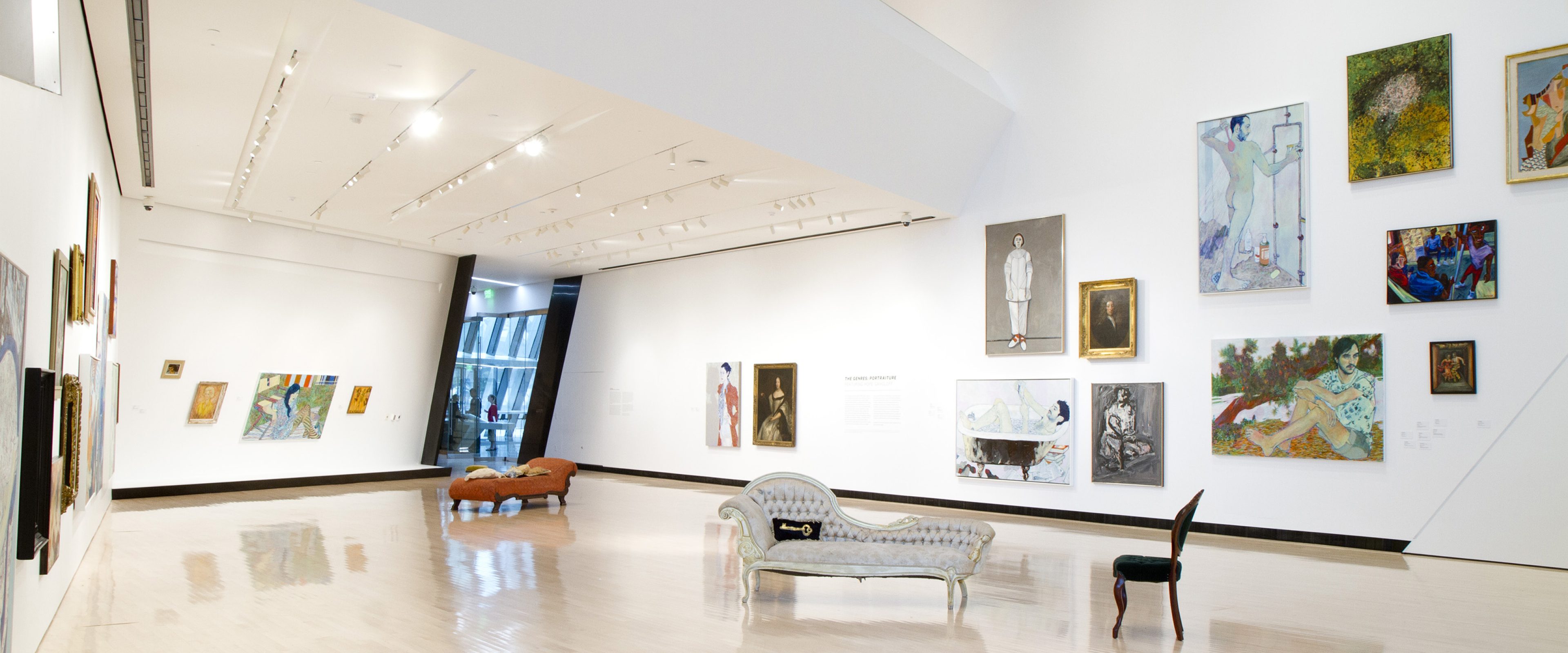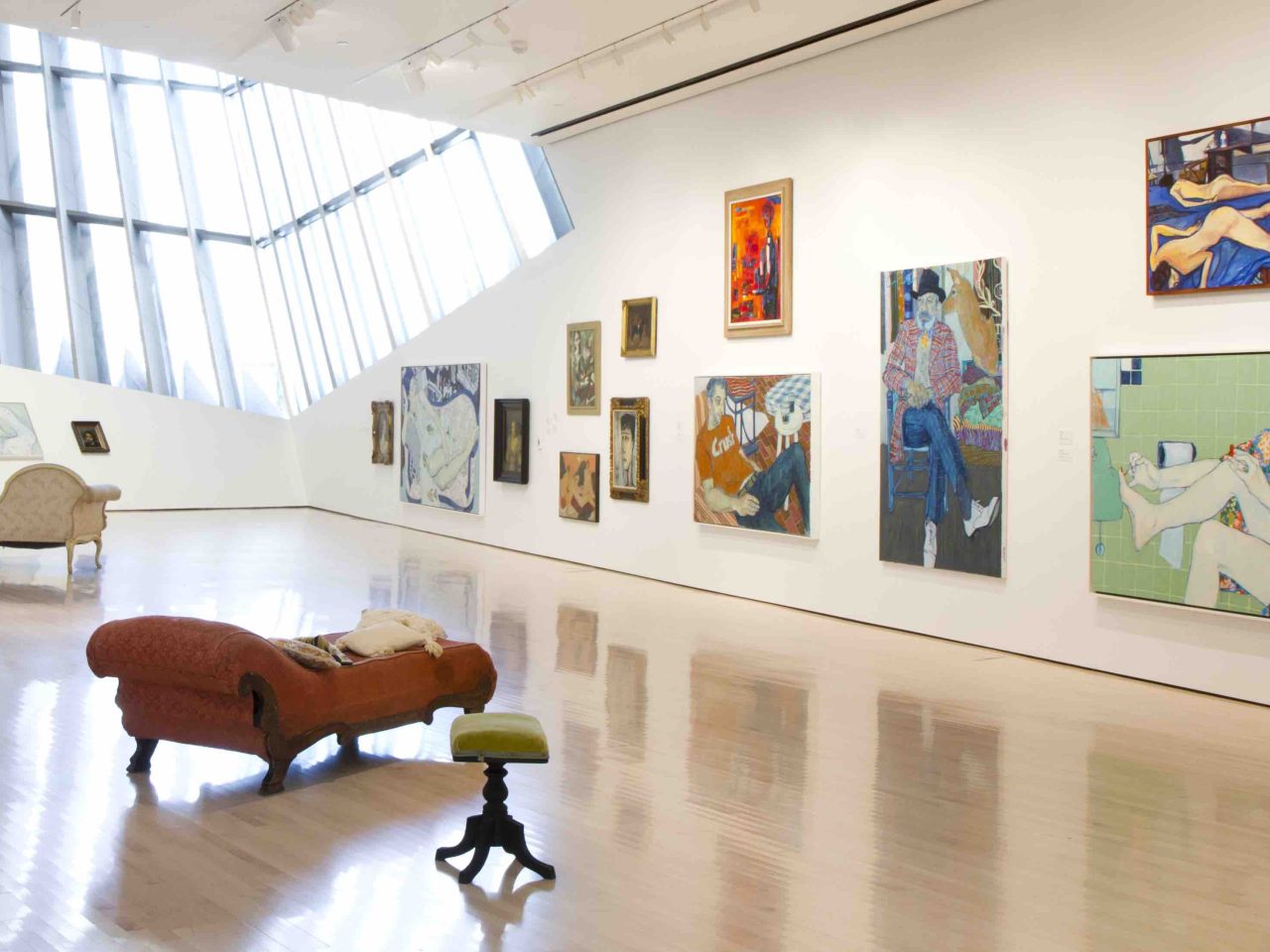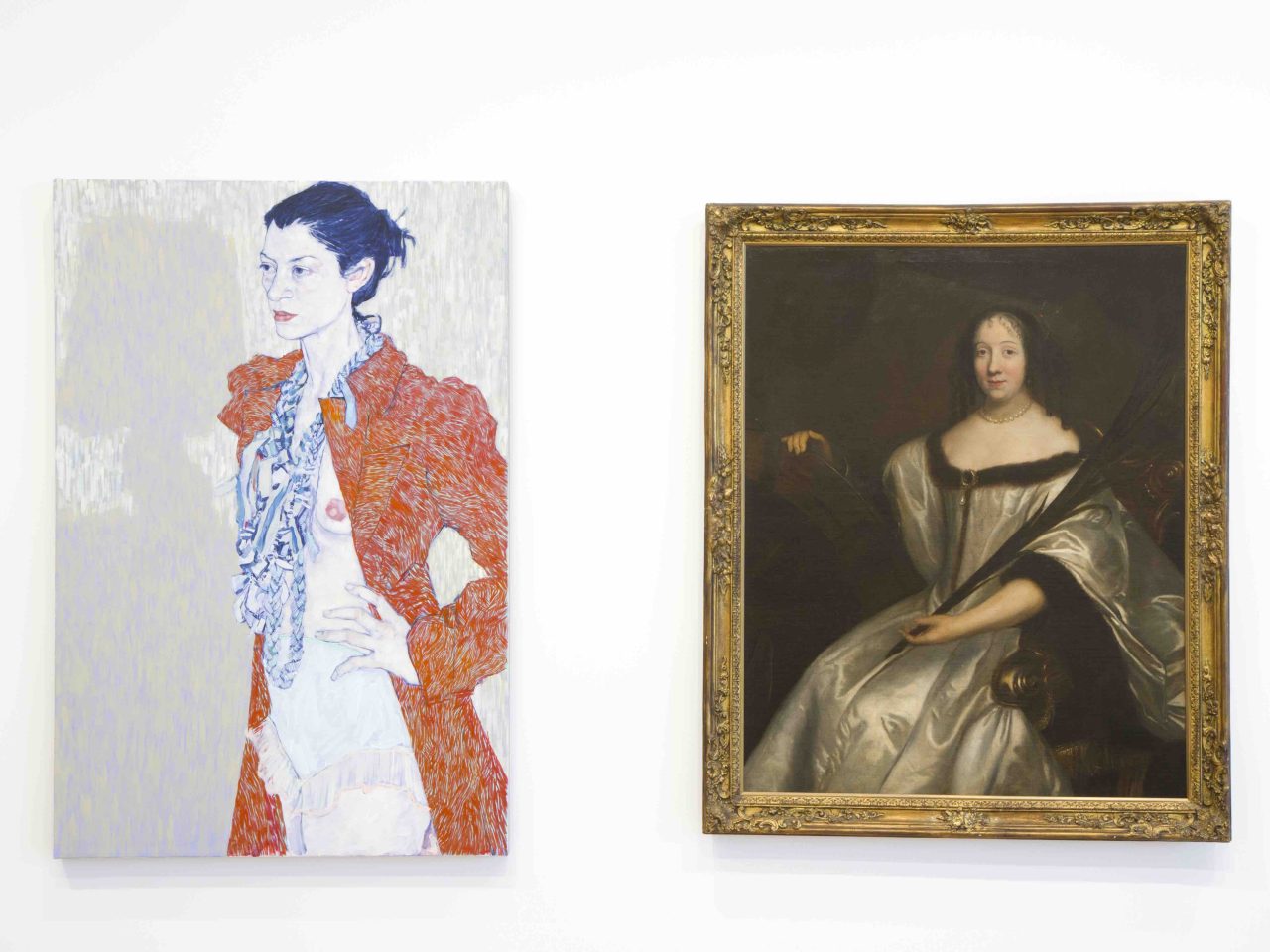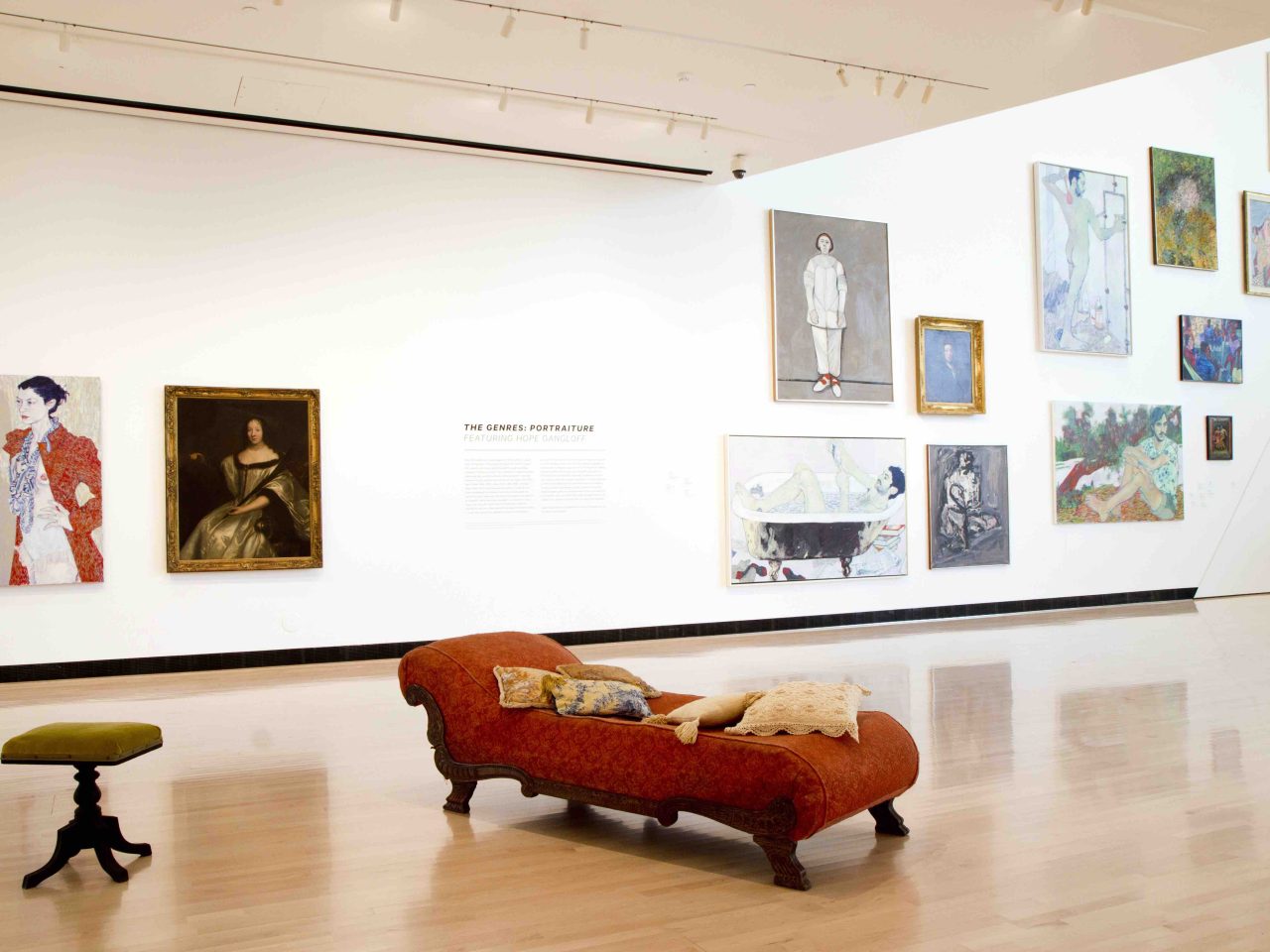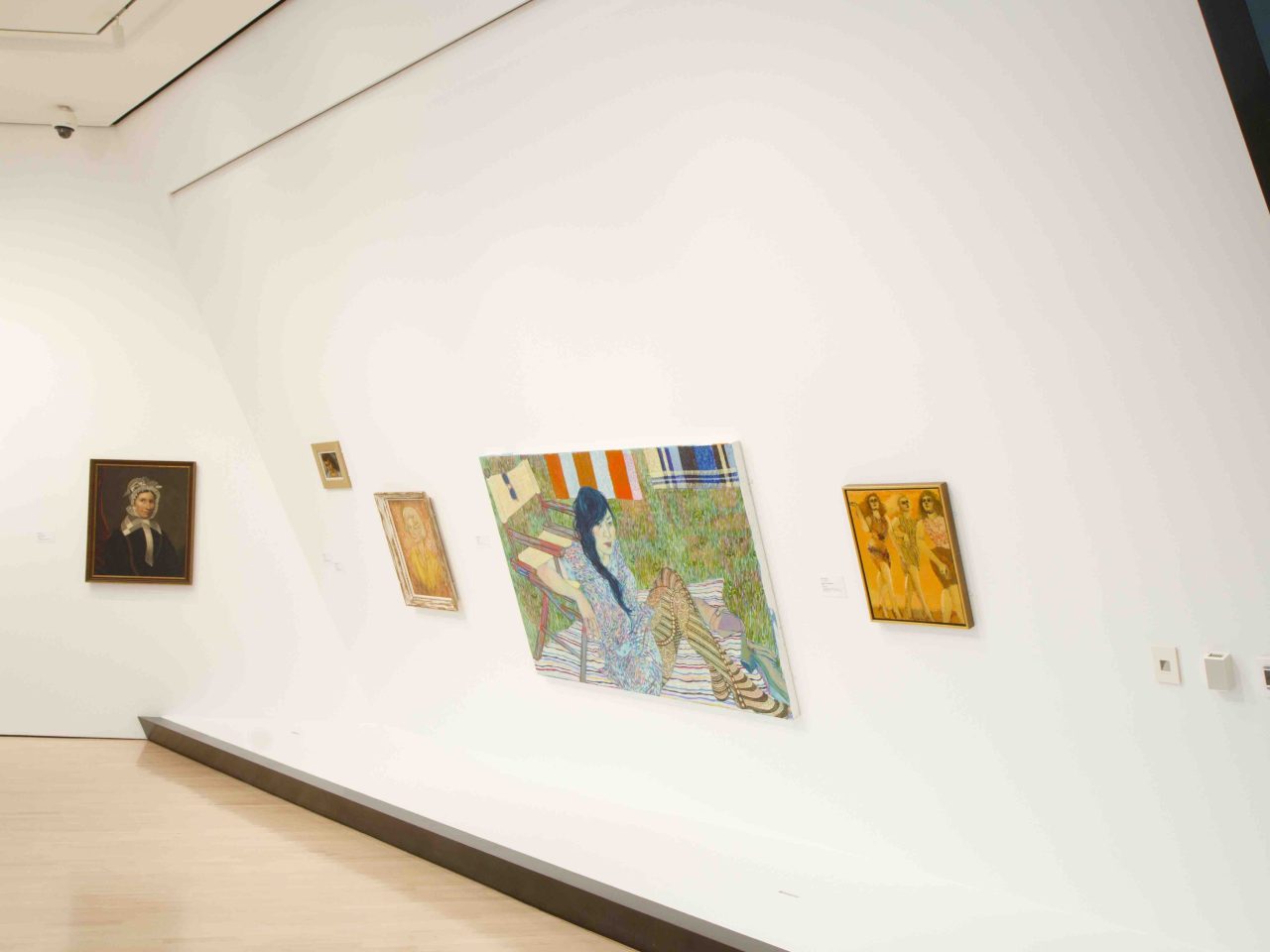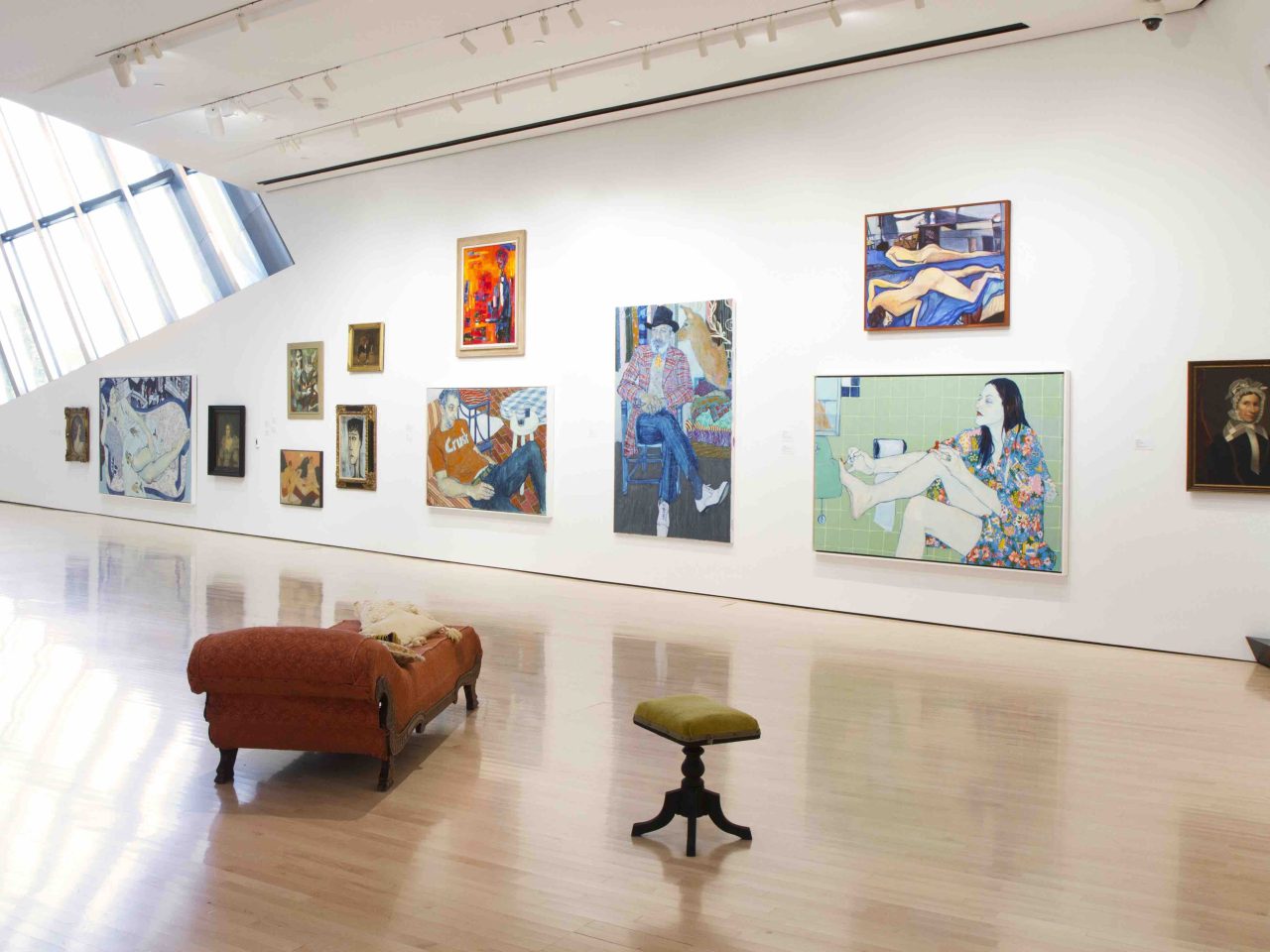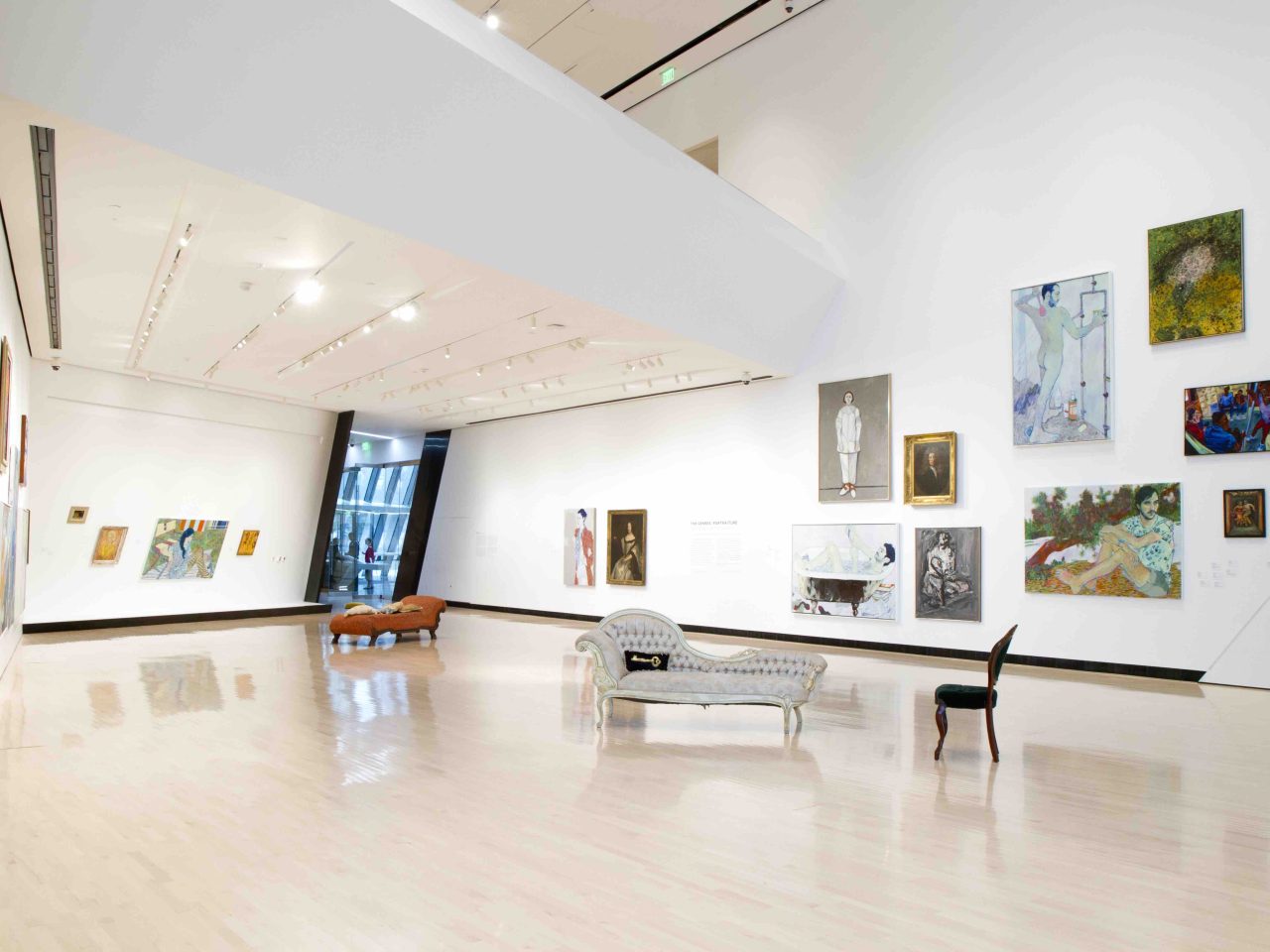The Genres: Portraiture featuring Hope Gangloff is organized by the Eli and Edythe Broad Art Museum at Michigan State University and curated by Alison Gass, Curator of Contemporary Art. Support for this exhibition is provided by the MSU Broad’s general exhibitions fund.
About the Exhibition
The MSU Broad is unique among contemporary art museums in that, while dedicated to international contemporary art, it has also inherited an extraordinary historical collection from the former Kresge Art Museum at MSU. Part of the MSU Broad’s mission is to show that collection as a means of contextualizing contemporary art within the language of art history, inspiring dialogues across the centuries and across regions. The Genres: Portraiture, Still-life, and Landscape not only exposes the MSU Broad community to emerging voices in the art world, it also allows us all to view the historical collection through radical new eyes.
First in the series is Brooklyn-based artist, Hope Gangloff. Her paintings of Brooklyn bohemians, primarily her friends caught seemingly unaware in moments of leisure, borrow heavily from late 19th- and early 20th-century expressionists such as Van Gogh, Egon Schiele, Gustave Klimt, and Suzanne Valadon; creating a sympathetic link between the historic avant-garde and post-postmodern hipsterism. For her project at the MSU Broad, Gangloff will present 10 recent paintings entangled in a salon style hang with approximately twenty works from the collection. These will fill the walls from floor to ceiling in the museum’s dramatic Minskoff gallery. In addition, Gangloff will publically create an original wall mural on the thirty foot high slanted wall of the space. As a nod to the mixing of historical traditions of art viewing and art-making, Gangloff will scavenge vintage furniture stores and fill the gallery with nineteenth century style love seats and armchairs reminiscent of those in both her paintings and those of her modernist forebears. By transforming Zaha Hadid’s highly contemporary gallery space into a Parisian salon of sorts, Gangloff explores the concept of an exhibition itself as a form of conceptual installation.
